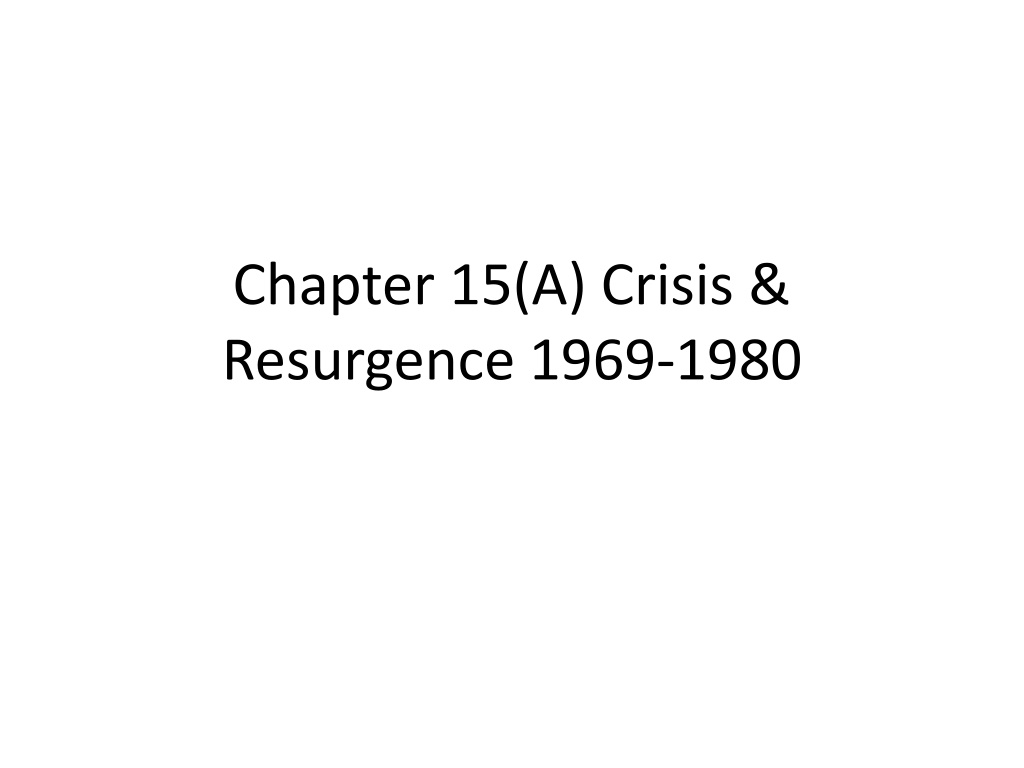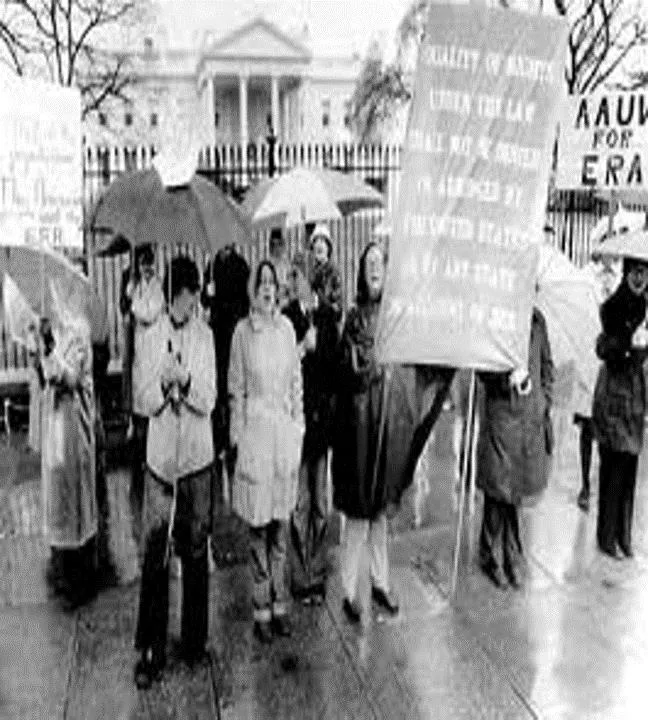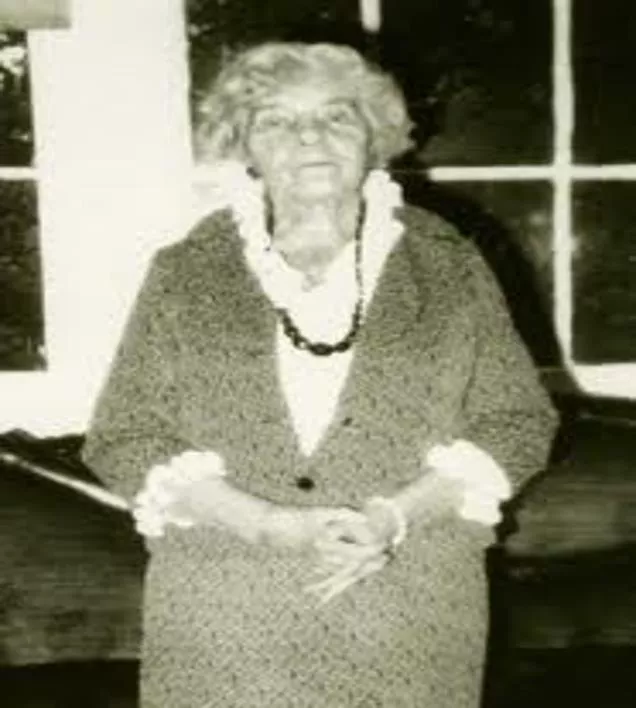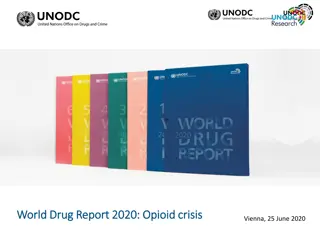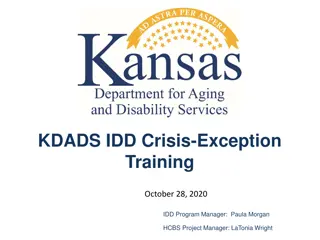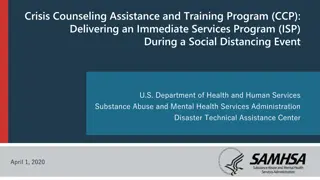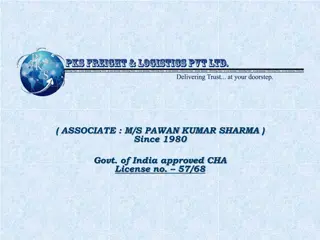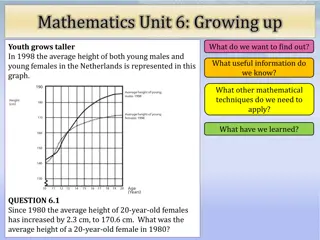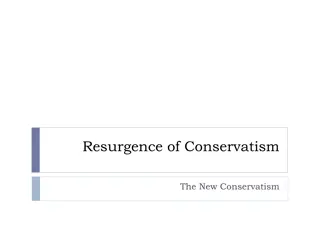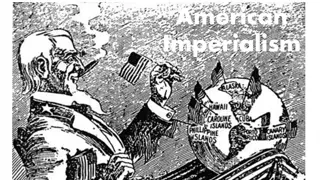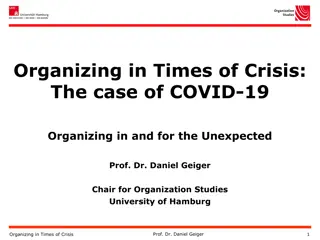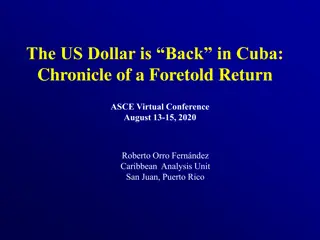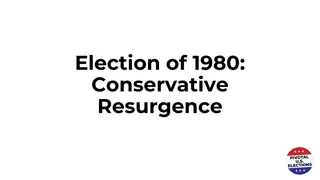A Look at the Crisis and Resurgence of 1969-1980 in American History
The period from 1969 to 1980 in the United States was marked by significant events such as the Equal Rights Amendment, the feminist backlash, Nixon's approach to civil rights, Democratic Congress initiatives, economic challenges leading to stagflation, the Energy Crisis, and Nixon's foreign policy triumphs notably with China and the Soviet Union.
Download Presentation

Please find below an Image/Link to download the presentation.
The content on the website is provided AS IS for your information and personal use only. It may not be sold, licensed, or shared on other websites without obtaining consent from the author. Download presentation by click this link. If you encounter any issues during the download, it is possible that the publisher has removed the file from their server.
E N D
Presentation Transcript
Chapter 15(A) Crisis & Resurgence 1969-1980
Equal Rights Amendment 1972 Alice Paul
Feminist Backlash During the 1970s groups like Women Who Want to be Women and Females opposed to Equality fought against the ERA The anti-feminist movement was led by Phyllis Schlafly They were successful in defeating the ERA in 1982
Nixon & Civil Rights Nixon s southern strategy was to slow down progress on civil rights Milliken v. Bradley the Supreme Court stopped the transfer of students from city to suburb Regents of the U. of CA v. Bakke which restricted quotas to get racial balance
The Democratic Congress The 26th Amendment Increases in Social Security benefits and food-stamp funding Occupational Safety & Health Act (1970) The Clean Air Act (1970) The Federal Election Campaign Act (1971)
Economic Malaise Economists coined the term stagflation in the early 1970s to describe unemployment & inflation rising simultaneously Reasons for stagflation 1st LBJ did not raise taxes to pay for the Great Society or Vietnam, 2nd the US now had international competition, & 3rd no more cheap sources of energy
The Energy Crisis b/c the US supported Israel during the Yom Kippur War OPEC cut off oil shipments In 1971, in an effort to curb inflation, Nixon imposed a freeze on wages & prices The Energy Crisis of the early 1970s increased support for environmentalism
Nixon Triumphant The Nixon Doctrine implied a foreign policy that was shaped more by realism and American interests Nixon s new relationship w/ China was made possible by China s fear of the Soviet Union Nixon s trip to the Soviet Union resulted in US wheat sales to the Soviets The person who most influenced Nixon s foreign policy was Henry Kissinger Henry Kissinger
The Election of 1972 & Watergate George McGovern of South Dakota is nominated by the Democrats and he complained of dirty tricks The burglars arrested at the Watergate Complex had connections to the CIA & the Nixon campaign Nixon s Watergate-related resignation came with the revelation that he had ordered a cover-up of the Watergate break-in Watergate Complex
The Unelected President Gerald Ford suffered terrible political damage when he pardoned Nixon In his 15 months as President he vetoed more bills then ever before Unemployment jumped to 9% in 1975 Ford tried to get voluntary restraints to curb inflation by passing out WIN buttons Whip Inflation Now Gerald Ford
The 1976 Jimmy Carter Victory was aided by His electoral strength in the South His non-Washington background His promise to be an honest president And Ford s less-than- impressive presidential record
Events during Carters Administration On the domestic front, Carter failed to deal adequately with the energy crisis Carter s management of the economy resulted in unacceptably high rates of inflation Carter s was able to get the Camp David Accords
Carters Downfall: The Crisis in Iran The crisis started with the overthrow of the American backed shah Carter was unable to secure the return of the 52 American hostages Carter froze the Iranian assets in the US Carter s rescue mission ended disastrously in the Iranian desert w/ 8 Americans dead
The Turbulent & Often Tragic 1970s Communist Conquest of South Vietnam The Watergate Scandal and the Nixon resignation The Energy Shortage & Stagflation And The Iranian Hostage Episode
The 1980 Election The Economy remained sluggish, with double- digit inflation, and high gas prices The Iran Hostage Crisis Carter was challenged on the left by Edward Kennedy Ronald Reagan was seen as sunny and Optimistic Carter and Reagan
